Back in January of this year, GQ Australia published a wonderful interview with Tom Ford entitled Tom Ford – The Ultimate Interview. I’m not quite sure how I missed it back then, but I am happy to share it with you now. I always love it when Lisa Eisner interviews Mr. Ford. They have a great personal relationship and it comes through every time a piece like this is published… you can just sense how at ease they are with one another. This one doesn’t disappoint!
In addition to offering readers a glimpse of the man behind the brand, the magazine also decided to feature some photos of Ford’s Sante Fe home in the piece. These images, by photographer Guido Mocafico, were first featured in the December 2010/January 2011 issue of Vogue Paris but I never tire of looking at them. In a word, the Tadao Ando designed ranch is stunning with a capital “S”. The sweeping landscapes, modern lines and magnificent use of light get me every time. I’ve included the full photoshoot in this post, including images that weren’t included in GQ.
Enjoy!
********************
Lisa Eisner: Hi Tom, how are you doing?
Tom Ford: I’m very well. Hold on a second, I want to do this interview lying down.
L: OK, let’s treat it like a shrink session. Looking at your career, it appears that success found you quickly.
T: It has not! I’m almost 50 years old. I’ve been a fashion designer for 25 years.
L: But you seem to move so quickly and to have done so many things. Are you totally fearless?
T: I am totally fearless! Well, of course, I’m not totally fearless. I worry constantly and obsess over things, but I just don’t let fear stand in the way of doing something that I really want to do. I’m a believer in fate and in fulfilling your destiny. I’ve always had a kind of inner voice that I have learned to listen to.
L: Are you living the life you thought you would?
T: I’m living the exact life I planned on living when I was five. My life has taken some turns and changes that I didn’t anticipate and it has brought me different things. I thought material things would bring me happiness, which they didn’t. But through this I have learned what things are important and what aren’t.
L: And if you lost everything tomorrow?
T: If I lost everything tomorrow I can honestly say that I would probably be just as happy, or unhappy, as I am today because as I recently said to [my partner] Richard, “Finally I feel like maybe we are as happy now as we were when we were living in our first apartment on St Marks Place [in Manhattan] when we had no money.”
L: You two have changed a lot over the years.
T: It has happened like that because we worked very hard at it. I think that there was a point a few years ago when we could have very easily said that this just isn’t working and we should stop. Although maybe Richard would disagree because he is older and maybe more grounded than I am and certainly less dramatic. For me, everything’s black or white. Perhaps I’m less like that now but for a long time everything was black or white, either a success, or not a success and I didn’t necessarily see the middle ground.
L: How did you get to that middle ground?
T: By hitting a low point, which started when I was 40 and very unhappy with what I was doing at Gucci. I was working too hard, I was going back and forth between Paris, London and Milan, I was designing 16 collections a year and I was becoming bored, frustrated and exhausted. That feeling intensified when I left Gucci because almost overnight I felt that I no longer had an identity. I had also invested an enormous amount of energy in making money, which was something that growing up I thought was very important, and I was beginning to see that money was not going to bring me the happiness that I had thought it would. Contemporary culture tells us that if you want to be happy you have to be rich, you have to live in this kind of house, have those kind of shoes, need that kind of watch and as a child and young adult I had completely bought into all of that. I had the good fortune to achieve success and to understand that money and materialism doesn’t necessarily make you happy. It certainly had not made me happy. So that period of not having any identity and not knowing what to do with myself and of drinking too much and self medicating because I was unhappy forced me to re-evaluate everything in my life. What came from that was that I have become much more spiritual.
L: What do you mean by that?
T: I don’t mean that I go to the Presbyterian Church every Sunday, which was how I was raised. It was really just doing a lot of reading and coming to a much clearer understanding that I had actually always been a very spiritual person — that I had always understood the way of the universe and that I had always understood what door to open, what door not to open and the importance of following my inner voice. But because of my success, I had lost respect for that and I had lost my way. By rediscovering all of that it has allowed me to learn that what makes me happy is building things. I like to make things — it is the act of building that is the ultimate enjoyment. It’s not the conclusion, it’s not making the money, it’s not having the house — it’s building the house.
L: So you left Gucci, moved to LA and spent four years making A Single Man.
T: After about a year and a half everyone in the fashion press started writing, “I guess he’s not successful at film and he’s not going to make a movie.” People in fashion move so fast and they expect everything to happen so quickly. You can make a collection in four or five months and then you make another one and another one, but film is not like that.
L: Were you frustrated that it took so long?
T: At the time I was but, looking back, I really couldn’t have done it sooner. By the time I made A Single Man, I was in exactly the right place to make that movie, just like returning to womenswear today. I have friends who were constantly telling me that I needed to design women’s clothes again, but I knew inside that I wasn’t ready to go back because I hadn’t found anything new to say and I hadn’t found a way to have fun with it again. Then I figured it out and was ready to go back and I thought, ‘OK, I’m only going to do this if it’s fun, and the day it stops being fun, I’ll close the company or I’ll sell it and l intend to stick to that’. The thing is, when you’re not having fun, your work isn’t as good. My last few collections for Gucci and Yves Saint Laurent were some of my best. They were beautiful, very well-made clothes and I am proud of them but I don’t think they came from a place of fun or joy. They came from discipline and determination. My earlier collections at Gucci came from a place of happiness because it was new to me, I was having fun designing those clothes and I think it showed. When you are having fun and creating something you love it shows in the product. So when a woman is sifting through a rack of clothes, somehow that piece of clothing that you had so much fun designing speaks to her, she responds to it and buys it. I believe you can actually transfer that energy to material things as you’re creating them.
L: That is a very spiritual thought.
T: It is. At this point, if I had to choose a religion, it would be Taoism, or possibly Vedanta, or maybe a Native-American religion. I have to say I do believe in the Native American way of respecting what you use and need from nature. I love being in nature because everything makes sense. If you spend time on our ranch or in the American West or anywhere in nature, all of a sudden, all the things you worry about all the time fade away. That’s why one of the greatest problems with where we are culturally at this time is that we’ve all lost touch with the earth and that which is really important in the world.
L: Isn’t it funny though that you’re in a business that is so much about the visual and superficial.
T: I’m always very torn about that. It does seem like a complete paradox because here I am speaking one way and I have embraced a certain philosophy that has allowed me great happiness and balance in my life and yet at the same time I am producing things that have a shelf life. I am contributing to an industry that makes people feel insecure or unhappy if they don’t have this or that. That’s why I try now, in this stage of my life, to create products that I feel have integrity in design, products that — and you have to get it into perspective — if you’re fortunate to have enough disposable income to spend on clothes, these things can add fun and joy to your life. But they are not going to make you happy.
L: But they can make you feel happy.
T: Possibly, if your head is in the right place, but in the end they mean nothing. I believe that everything in the world is transient and that when you break a glass it doesn’t really matter because it’s going to return to the sand and dust where it came from and that everything on the earth is moving constantly and that things and energies are changing forms.
L: I think you’re funnier now that you’re not drinking.
T: That’s because I’m happier. I wasn’t drinking to relax, I was drinking to escape. Drinking loosens our inhibitions, but inhibitions are there for a reason. I would become quite nasty, mean, negative and unhappy. The drinking was a form of self medication and it was really a way for me to get through things I really didn’t want to do. Now I just don’t do them. If I don’t want to go to a party, I don’t go to a party.
L: Do you have Native-American blood?
T: No, my family is Scottish. But New Mexico has always been a very spiritual place for me, even before I realised I was particularly spiritual.
L: Was that true for your grandmother too?
T: For my grandmother, Santa Fe meant freedom. She could have boyfriends, she could sleep with whomever she wanted and she could get married another three times. She was a woman who cared very much about clothes, boyfriends, dresses, parties and drinking, so I don’t know how spiritual she actually was.
L: But she had a profound influence on you.
T: For me, she was this glamorous thing that would sweep into our lives and give us boxes of clothes or the latest little things. We lived in a very suburban environment, so she was exotic. And I knew that wherever she was, I wanted to be. Meaning I wanted to get the hell out of where I was and be living a life in a beautiful apartment, knowing exciting, interesting people, wearing expensive clothes, driving a beautiful car, which eventually I did until I realised that didn’t make me happy.
L: Didn’t you always feel like a freak growing up?
T: I thought I was fabulous and everyone else was stupid.
L: How did you dress back then?
T: I was so weird! I wouldn’t wear short-sleeved shirts. Short-sleeved polo shirts are one thing, but to this day I don’t like a man in a short-sleeved woven shirt. I would always take my long-sleeve shirts and roll them very neatly into this giant sort of cuff around my upper arms. I also carried a briefcase in the first and second grades. I was often beat up for it. Then, in the ’70s, I went through the period of flared pants and flowery shirts. I grew my hair long and at one point I looked a lot like a girl.
L: I bet you were so beautiful.
T: When I was young I was pretty. Even when I was eighteen I was more pretty than handsome. I don’t mean this to sound conceited, but with age I think I’m finally becoming more handsome than pretty.
L: OK, I have a couple of good last questions here. Such as, how big is your penis?
T: I hate interviews so I usually assert myself enough to bring up subjects I want to talk about.
L: Really?
T: I’m actually extremely shy, but no-one believes that.
L: You’re right, no-one would ever think that.
T: Well, in my job, what I do is a performance. My real job is sitting in my office designing. That’s the part I like — getting a great idea and making things. I actually hate talking about it because that’s not creative.
L: Do you have to do everything well?
T: Yeah, I hate when there’s something I can’t do.
L: Will you keep doing it until you’re better at it?
T: With some things, if it’s worth it, yes.
L: You seem to have a strong soul.
T: I trust my instinct.
L: How can you hear it with all the noise in your mind?
T: I’m not saying you shouldn’t think. You have to use your brain too, but you have to realise your brain is just another organ. I can work and work on something and think about it and then all of a sudden a light bulb goes off and I think, ‘That’s it, that’s the answer!’ And then I’m absolutely sure about it and even if I’m wrong I just move dead straight ahead towards it.
L: Was there a crucial time or person in your life?
T: Every moment, every step. If I had stayed in Texas I probably would have been a completely different kid than the one that moved to New Mexico. Then moving to New York, meeting the people I met when I was a teenager, had an enormous impact on my life. Every single step in my life has had a tremendous effect on the next step in my life.
L: What’s it like having guys and girls constantly throwing themselves at you?
T: Guys never throw themselves at me. Girls come onto me because they think it’s fun, because they know that I’m gay.
L: Girls do like you.
T: Well, I like girls.
L: You’re the straightest queer I know.
T: I think all of us are on a sliding scale of sexuality and at a certain point in my life I was straight and I was perfectly happy to sleep with women and I fell in love with women. Right now, I’m with Richard. I can say that if I were not with Richard and I happened to meet a woman that I connected with I could very easily be very happy being with a woman. Biologically, I am almost as attracted to women as I am to men. I am not emotionally attracted to women like I am to men.
L: Do you love photographing women more than men?
T: It’s different. I find women so incredibly beautiful. I find men beautiful but I can also find them sexual in a different way than I find women. I can actually become blinded photographing men because I can lose my visual objectivity if they have a strong sexual magnetism. With women I am able to remain more objective. I think that gay men make better designers because it is hard for a straight man to look objectively at a woman in the way that a gay man can. A straight man isn’t looking at a woman and thinking, ‘Hmm, her head’s a little too big for her body so we need to make wider shoulders, which will make her head look in proportion’. He’s thinking, ‘Wow, look at that butt, I love a bubble butt, I really wanna fuck that butt.’
L: You have a sculptor’s eye for proportion and bodies.
T: I’m not a sculptor but that’s what I do. It’s what I do with a shoe. I remember as a seven-year-old child sitting in the back of the car after getting a new pair of shoes and I was looking at the toe and I was so upset because I knew that the bump on the toe of my shoe was about a millimetre or two just too much in one direction and it drove me crazy. I took those shoes home and I never wore them again!
L: Is there anything you regret?
T: I don’t regret one single thing I’ve ever done in my life, even if it was the stupidest thing in the world, even when I felt up Victoria Beckham’s tits in front of David and he didn’t speak to me for six months and I had to send flowers and notes. Even that, I don’t regret because it taught me, ‘Hey, maybe you’re drinking too much and you’re doing really inappropriate things to other people’s wives and maybe you need to get a grip!’ I learned something so I don’t regret it.
L: I think people assume you are going to be ‘Mr Perfect’.
T: Oh God, I think I’m so imperfect. I think if people actually knew the real me, they would hate me.
L: Who is the real you?
T: I’m actually extremely insecure.
L: I don’t think you’re insecure. Well, maybe a tiny bit.Do you think that insecurity is getting less as you age?
T: Oh totally, less and less.
L: Exactly, another great reason to become older, right? If somebody said you could become any age, would you go back even a day?
T: Not at all. I don’t even think I would want my old body back.
L: Where are you going to be when you are 85?
T: I have an idea but it’s much less certain than it would have been had you asked me that five years ago. I’m much more into, believe it or not, letting life carry me along. I would say the ideal version if I were to answer this now is: I’m 85, I’m living in Santa Fe, I have let my hair go grey! I will probably still look pretty good for an 85-year-old man. Hopefully I will be doing enough yoga that I’m still limber so I can bend over, move around, go skiing and do all the things that I do. And I’ll probably be making movies more than I will be making fashion. Or, I might not be making movies but decide to make mud sculptures.
L: That’d be cool.
T: I don’t know exactly what I’m going to look like but I do know that caring about my appearance is an integral part of myself and I’m always going to be doing what I have to do to stay as good looking as I can be at that moment in time. I’m trying to spend more time now doing Pilates and other things that keep you limber. When you look at older people who do a lot of yoga they have a completely different way of moving than older people who don’t.
L: I love you but I need to go now. We got a lot of good shit.
T: I love you too and thank you for doing this.
********************
Well, what did you think? Great interview, isn’t it?
And the ranch? Breathtaking, right?
Image credits: Images by Guido Mocafico
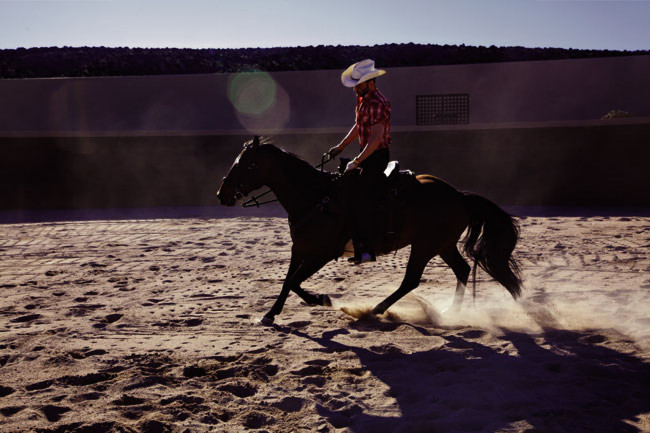
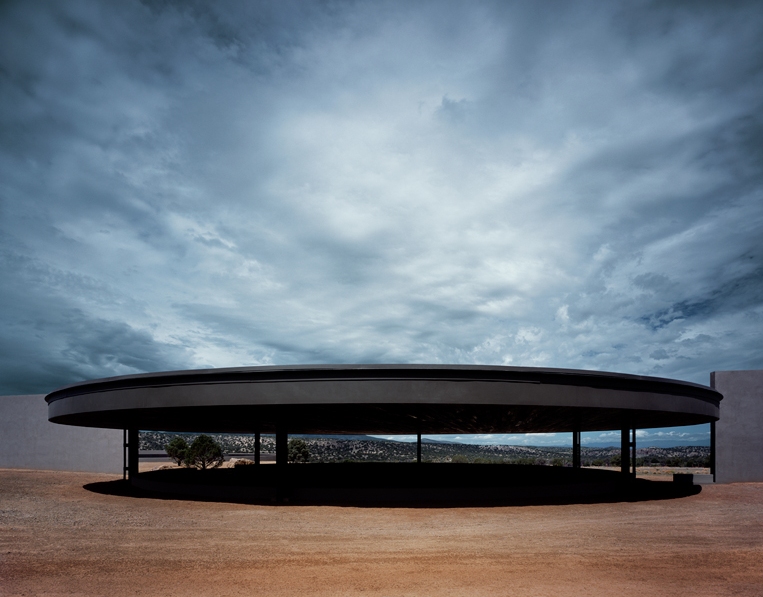
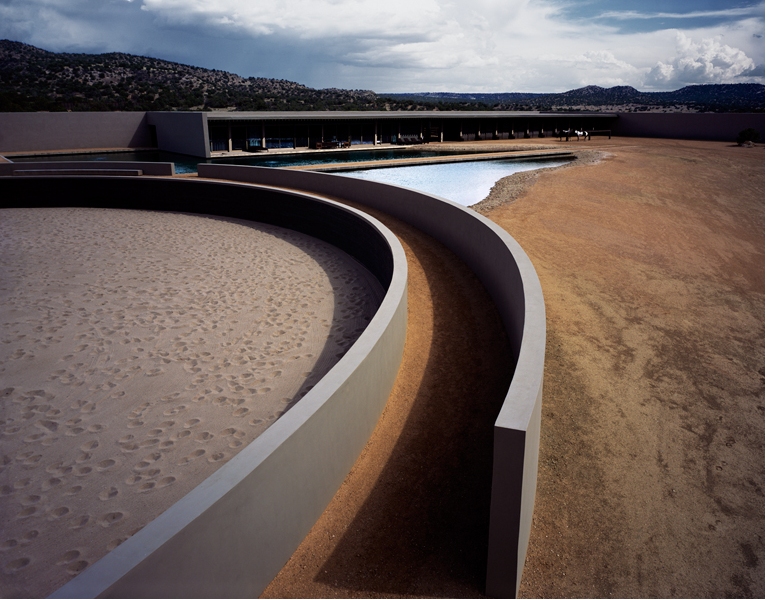
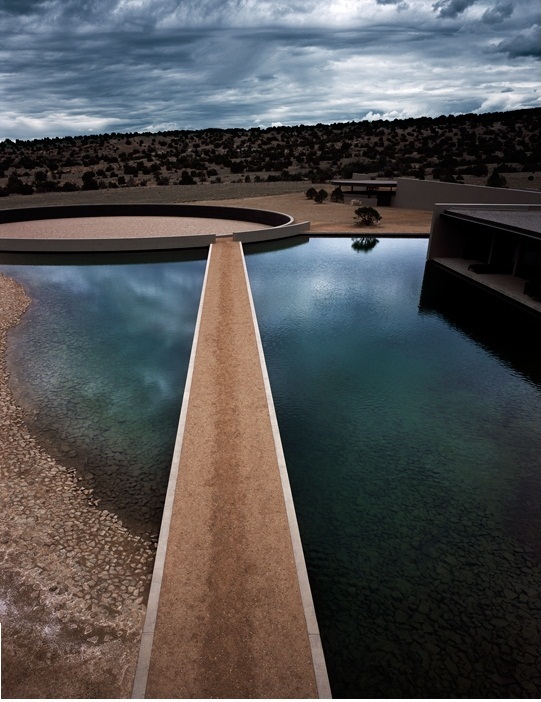
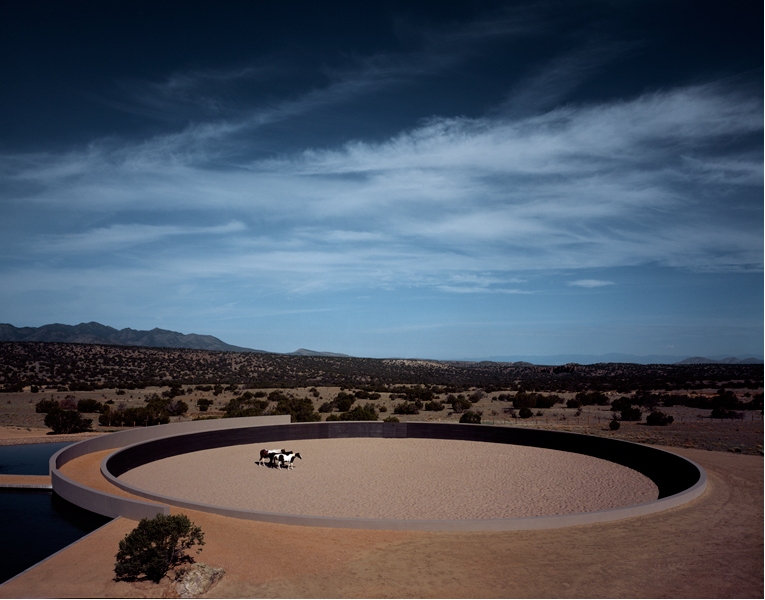
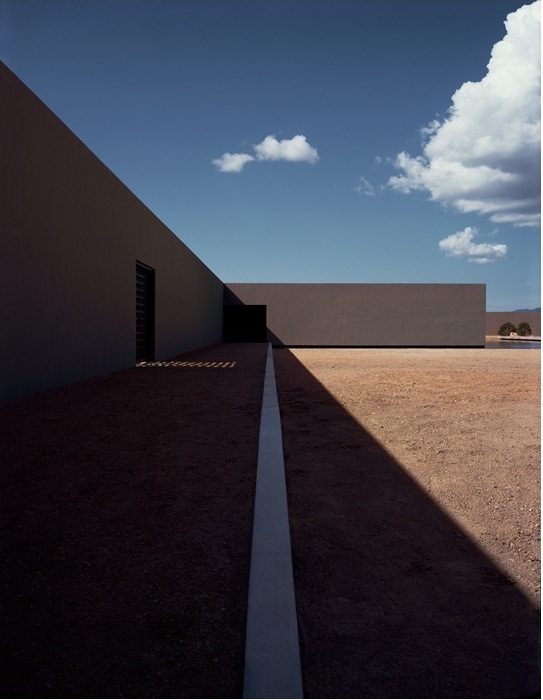
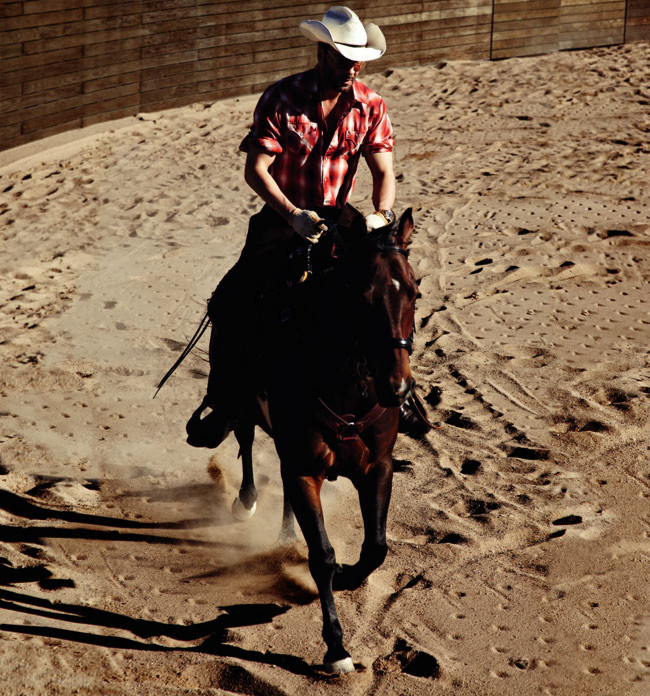
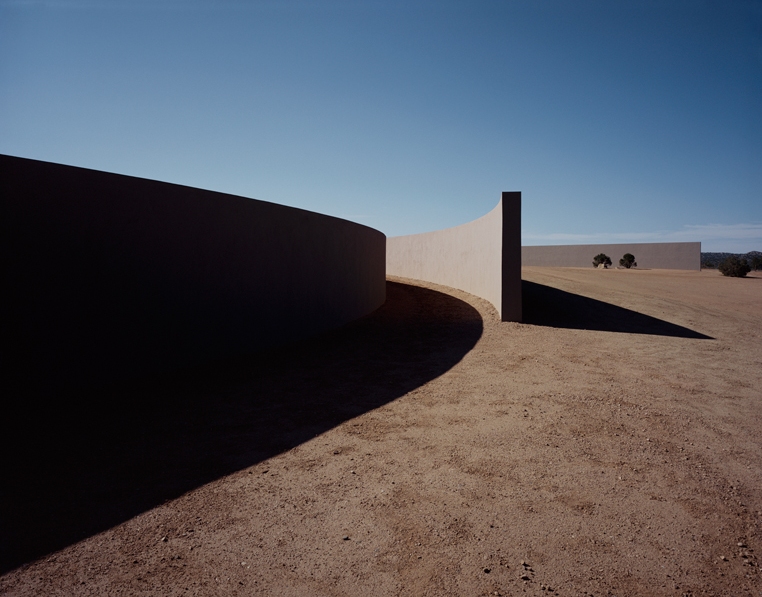
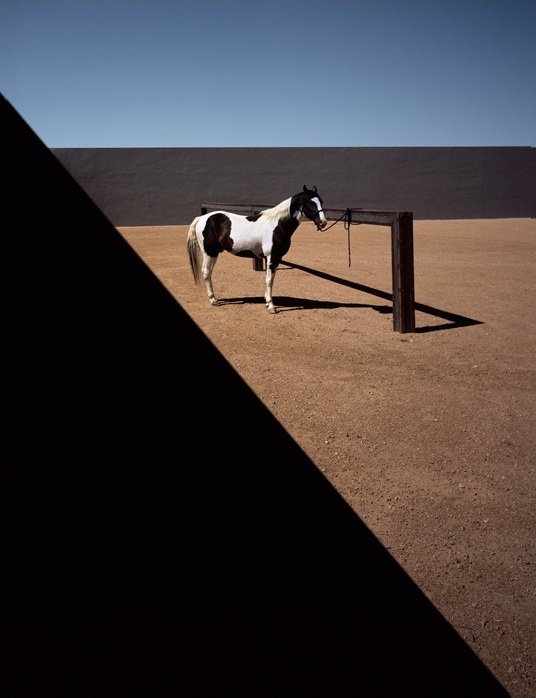
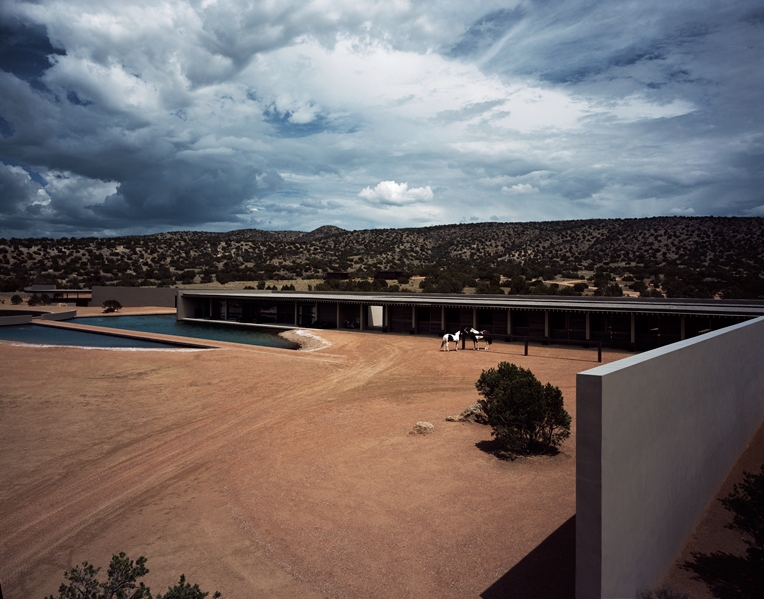
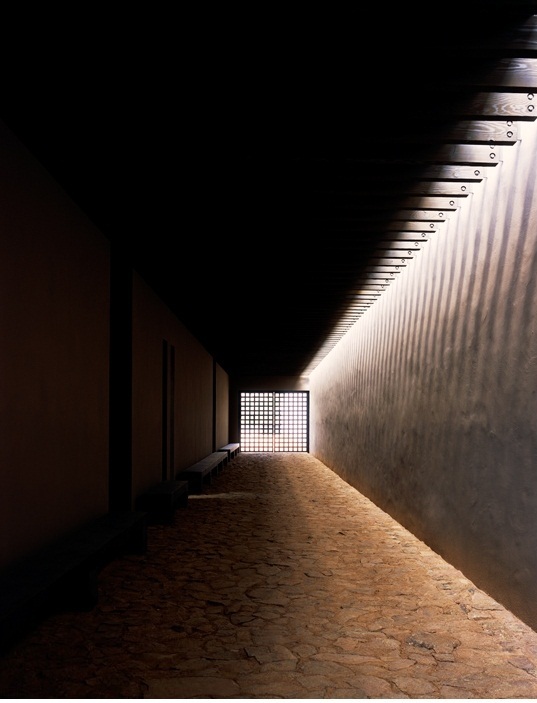
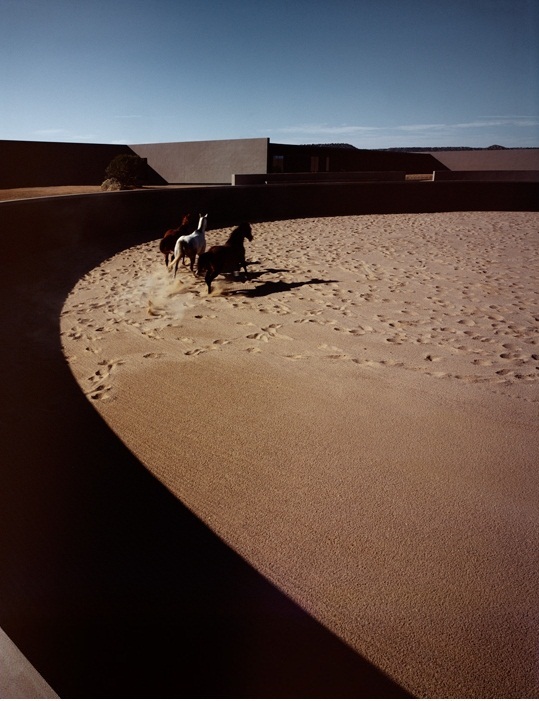

5 comments… add one
AWESOMENESS. Every time he gives an interview, I just love him even more. And the fact he goes both ways? Oh, there’s hope for all of us!
GRIT & GLAMOUR recently posted…WVW: Pseudo Tom Ford*
This is a super nice ranch. It was so lovely, I love the place. Thank you for sharing the photos.
Rosa recently posted…First Look at Foods That Cause Heartburn
What an amazing life he has…OMG!
What a man…what a life! *sigh*
All photos are amazing, you are really wonderful and your life style also.
Is there a way to visit this place? How far is from Santa Fe’s downtown? I’ll be the next 2 weeks in Santa Fe and it’d be fabulous to visit it